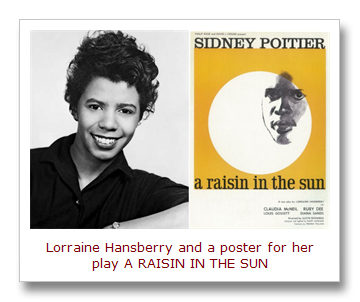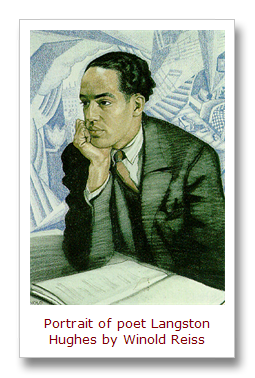On March 11, 1959, the play A Raisin in the Sun, written by Lorraine Hansberry, premiered at the Ethel Barrymore Theater in New York City.
It was the first Broadway play written by a black woman.
It was the first Broadway play directed by a black director, Lloyd Richards.
And, rather unexpectedly, Hansberry’s intimate story about hopes and troubles of “one Negro family” in segregated Southside Chicago was a critical and popular success.
The play significantly boosted the acting careers of cast members Sidney Poitier, Ruby Dee, Ivan Dixon and Louis Gossett, Jr. — who went on to star in the highly-praised film version.
It also made the phrase “a raisin in the sun” familiar to millions of people.
Hansberry didn’t coin the title of her play. She took it from a famous poem by a groundbreaking “Harlem Renaissance” poet and novelist she admired, Langston Hughes.
The poem was originally titled “Harlem.” But it’s sometimes referred to as “A Dream Deferred” — partly because one of the lines in it includes that memorable phrase and partly because it first appeared in 1951 in a collection of Hughes’ poetry titled Montage of a Dream Deferred.
Race relations in America have obviously improved since 1951. But “Harlem” still packs a wallop.
It’s short and full of potent imagery. Here’s the complete poem:
What happens to a dream deferred?
Does it dry up
like a raisin in the sun?
Or fester like a sore —
And then run?
Does it stink like rotten meat?
Or crust and sugar over —
like a syrupy sweet?
Maybe it just sags
like a heavy load.
Or does it explode?
Although Lorraine Hansberry didn’t coin the phrase “a raisin in the sun,” she did create an equally famous one before her untimely death from pancreatic cancer in 1965.
The year before she died, Hansberry was invited to be a speaker at a ceremony honoring a group of bright, young African-Americans who had won a creative writing contest sponsored by the United Negro College Fund and Readers Digest.
Hansberry gave a brief, moving speech at that ceremony on May 1, 1964. In it, she coined the phrase “to be young, gifted, and black.”
“Apart from anything else,” Hansberry told the young writers, “I wanted to be able to come here and speak with you on this occasion because you are young, gifted, and black. In the month of May in the year 1964, I, for one, can think of no more dynamic combination that a person might be…The Negro writer stands surrounded by the whirling elements of this world. He stands neither on a fringe nor utterly involved: the prime observer waiting poised for inclusion…And that is why I say to you that, though it be a thrilling and marvelous thing to be merely young and gifted in such times, it is doubly so, doubly dynamic — to be young, gifted, and black. Look at the work that awaits you! Write if you will: but write about the world as it is and as you think it ought to be and must be — if there is to be a world. Write about all the things that men have written about since the beginning of writing and talking — but write to a point. Work hard at it, care about it. Write about our people: tell their story. You have something glorious to draw on begging for attention. Don’t pass it up. Use it. Good luck to you. This Nation needs your gifts. Perfect them!”
In 1969, Hansberry’s ex-husband Robert Nemiroff used parts of her plays, speeches, essays, letters and unpublished works to create a play dramatizing her life. He titled it To Be Young, Gifted and Black and later published it as a book.
That year, Hansberry’s friend Nina Simone also released a stirring song that used the same title, which she wrote with musician and lyricist Weldon Irvine as a tribute to Hansberry.
“To Be Young, Gifted and Black” became Simone’s signature song and has been covered by many other great music artists, including Aretha Franklin, Donny Hathaway and Dionne Warwick.
In 2008, an African-American was elected President of the United States. In 2012, President Barack Obama was reelected for a second term.
Some of the credit for that highly visible sign of change surely goes to writers like Lorraine Hansberry and Langston Hughes, whose eloquent works helped raise awareness of and inspire the struggle for civil rights in the 1950s and 1960s.
* * * * * * * * * *
Comments? Corrections? Questions? Email me or post them on my Famous Quotations Facebook page.
Related reading and listening…










